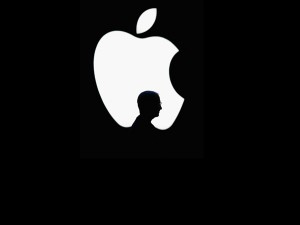Apple even stronger a year after Steve Jobs death
WASHINGTON — As Apple paid homage Friday to Steve Jobs a year after his death, the US technology giant appeared to be extending its leadership in the sector even without the visionary leader.
Visitors to the Apple website were greeted with a brief video showing snippets of Jobs and the various products he introduced, from the early Apple computers to the iPhone, and a message from chief executive Tim Cook.
“Steve’s passing one year ago was a sad and difficult time for all of us,” Cook wrote.
“I hope that today everyone will reflect on his extraordinary life and the many ways he made the world a better place.”
Jobs died Oct. 5, 2011 at the age of 56, after a long battle with cancer.
“One of the greatest gifts Steve gave to the world was Apple,” Cook said. “No company has ever inspired such creativity or set such high standards for itself. Our values originated from Steve and his spirit will forever be the foundation of Apple. We share the great privilege and responsibility of carrying his legacy into the future.”
Cook added: “I’m incredibly proud of the work we are doing, delivering products that our customers love and dreaming up new ones that will delight them down the road. It’s a wonderful tribute to Steve’s memory and everything he stood for.”
Despite the loss of Jobs, Apple has maintained and even extended its leadership with a record-breaking introduction of the iPhone 5, helping lift its shares to record highs.
Apple is also widely expected to introduce a smaller version of its market-leading iPad later this month, which may be another huge success.
But analysts said this may not be an indication of Apple’s long-term future.
“Apple can continue to fly along on the fumes of the Steve Jobs-era for quite a while,” said Roger Kay, an analyst and consultant with Endpoint Technologies Associates.
Jobs and Apple had “a lot of things in the pipeline” before he died and these ideas can keep fueling Apple for some time, he added.
“What Steve could do was envision a product market that didn’t exist at all,” Kay said. “There aren’t many people who can do that. Not at Apple, maybe not anywhere.”
Over the long term, Kay said the outlook is less clear. Apple’s success was not just the work of one person, said Kay, but Jobs was at the center of it.
“You can have an orchestra, and all the players are very fine, but the conductor is the guy who pulls it all together and makes it sounds like an orchestra,” he said. “That’s the way he ran Apple.”
Trip Chowdhry at Global Equities Research said Apple may never be the same.
“Our research is indicating that probably this is the peak for Apple,” Chowdhry said in a note to clients.
“The success of a consumer product is dictated by getting the last two percent right,” Chowdhry explained.
“We think that skill has now left Apple, and Apple may be the new Microsoft, coming with good enough products like Microsoft does. Perfection may not be the hallmark of Apple as Steve Jobs is no more.”
Jobs was just 21 when he founded Apple Computer in 1976 in his family garage with his 26-year-old friend Steve Wozniak.
From such humble beginnings, the company grew into the world’s most valuable firm, with a market value of above $600 billion. Since Jobs’ death, Apple stock is up some 70 percent.
Jobs led the drive for Apple to produce the iPod, iPhone and iPad. He also created iTunes, which became one of the world’s biggest e-commerce platforms and a leading vendor of music, apps and other content.
Under Jobs, Apple introduced its first computers and then the Macintosh, which became wildly popular in the 1980s. But he left Apple in 1985 after an internal power struggle and started NeXT Computer company, aimed at businesses.
He then co-founded Pixar animated studios in 1986 from a former computer graphics unit he bought from movie industry titan George Lucas. The studio has produced acclaimed films like “Toy Story.”
Jobs reconciled with Apple in 1996 with the company buying NeXT for $429 million and Jobs ascending once again to the Apple throne.
Jobs revamped the Macintosh line, as well as launching a “post-PC era” in which personal computers give way to smart mobile gadgets.
